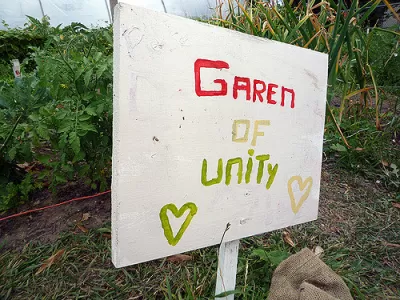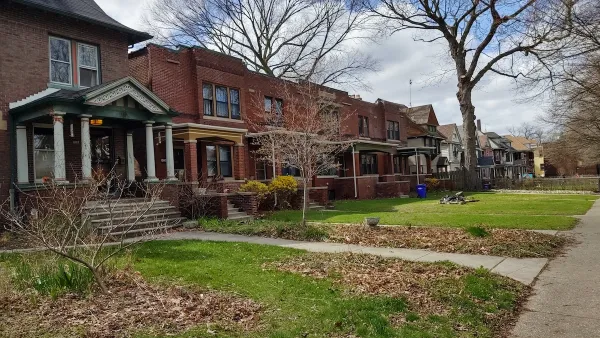Research from late 2021 documented the footprint of urban gardens in Detroit, finding evidence of inequities but not gentrification.

Pat Batcheller reports for WDET about research published in fall 2021 finding that urban gardens in Detroit don’t cause gentrification. Urban gardens do, however, tend to be found in more affluent neighborhoods, contributing to inequities in the city.
The research, published in the September issue of the journal Landscape and Urban Planning, used remote sensing, satellite imagery, and Google Streetview to locate 600 home and community gardens around the city, according to Batcheller.
“The study says that while urban gardens offer many benefits, they’re unequally distributed. That surprised [research co-author Jason Hawes] and his colleagues because Black Detroiters have led the urban gardening movement,” writes Batcheller.
What the research did not find is evidence that gardens contribute to gentrification. “Hawes says property values across the city are neither stable enough nor high enough to be affected by urban gardens,” reports Batcheller. “Instead, what they’re seeing is that as new folks come to town who are attracted to urban gardening, they’re reshaping the landscape by building new gardens, but not necessarily displacing people in communities that already had gardens.”
FULL STORY: Urban gardens don’t lead to gentrification in Detroit, study says

Maui's Vacation Rental Debate Turns Ugly
Verbal attacks, misinformation campaigns and fistfights plague a high-stakes debate to convert thousands of vacation rentals into long-term housing.

Planetizen Federal Action Tracker
A weekly monitor of how Trump’s orders and actions are impacting planners and planning in America.

In Urban Planning, AI Prompting Could be the New Design Thinking
Creativity has long been key to great urban design. What if we see AI as our new creative partner?

Pedestrian Deaths Drop, Remain Twice as High as in 2009
Fatalities declined by 4 percent in 2024, but the U.S. is still nowhere close to ‘Vision Zero.’

King County Supportive Housing Program Offers Hope for Unhoused Residents
The county is taking a ‘Housing First’ approach that prioritizes getting people into housing, then offering wraparound supportive services.

Researchers Use AI to Get Clearer Picture of US Housing
Analysts are using artificial intelligence to supercharge their research by allowing them to comb through data faster. Though these AI tools can be error prone, they save time and housing researchers are optimistic about the future.
Urban Design for Planners 1: Software Tools
This six-course series explores essential urban design concepts using open source software and equips planners with the tools they need to participate fully in the urban design process.
Planning for Universal Design
Learn the tools for implementing Universal Design in planning regulations.
planning NEXT
Appalachian Highlands Housing Partners
Mpact (founded as Rail~Volution)
City of Camden Redevelopment Agency
City of Astoria
City of Portland
City of Laramie




























